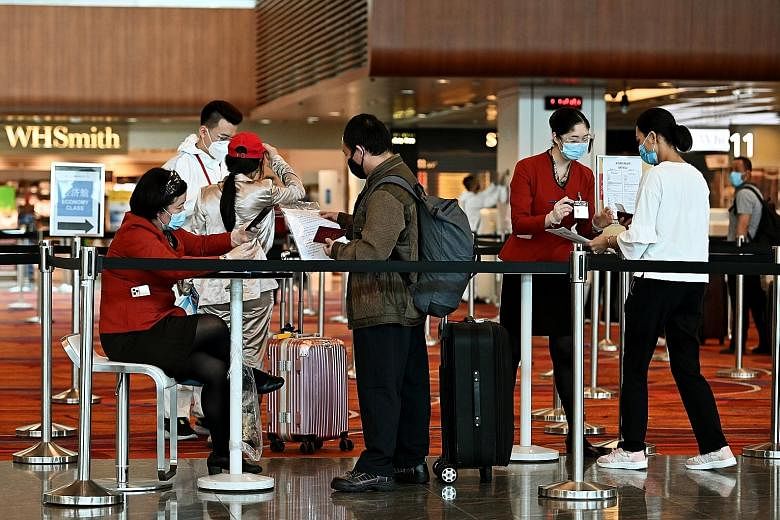NEW YORK • As cases of the coronavirus continue to climb worldwide, many countries are doubling down on testing policies that can grant or bar entry to travellers attempting to move across international borders.
But an unusual new testing policy, announced by China at the end of last month, has health experts baffled.
It requires inbound travellers to present negative results from an antibody test - which can neither reliably rule out infection nor prove that a person is not transmitting the virus to others.
"I don't understand why they would be doing this," said Dr Krutika Kuppalli, an infectious disease physician at the Medical University of South Carolina.
"It seems like this is their method of security theatre."
The strange guidelines, experts said, seemed to reflect an outdated understanding of the ways in which the virus and the immune system interact.
In the spring, several companies attempted to market antibody tests as potential diagnostics of active infection.
Some (but not all) later tempered or walked back these advertisements as researchers gathered more information about the timing of the antibody response to the virus, which does not kick into gear until levels of the pathogen are waning.
Guidelines from the Centres for Disease Control and Prevention describe antibody positives as a generally poor proxy for the presence of active virus in the body.
Previous iterations of China's policies stipulated that travellers would need to test negative only by a "nucleic acid test", a tool that hunts for the genetic material of the coronavirus.
Most available tests that meet this requirement rely on a laboratory technique called polymerase chain reaction, which can home in on the virus even when it is present at very low levels in the body.
But as the coronavirus continued to spread in countries like the United States, Britain, Ireland and Russia, Chinese health officials became concerned that some foreign travellers might slip through the diagnostic cracks.
Mainland China reported 18 new Covid-19 cases on Friday - all imported - up from eight cases a day earlier, the country's national health authority said yesterday.
The mainland's total confirmed cases now stands at 86,325, while the death toll remains unchanged at 4,634.
The city of Hong Kong yesterday announced tighter social distancing restrictions, as it reported three new locally transmitted cases, one of which was from an unknown origin.
The new rules, which will be effective from tomorrow until Nov 26, include halving restaurant and bar capacity and reducing the number of diners at restaurant tables to four from six.
NYTIMES, REUTERS, BLOOMBERG











